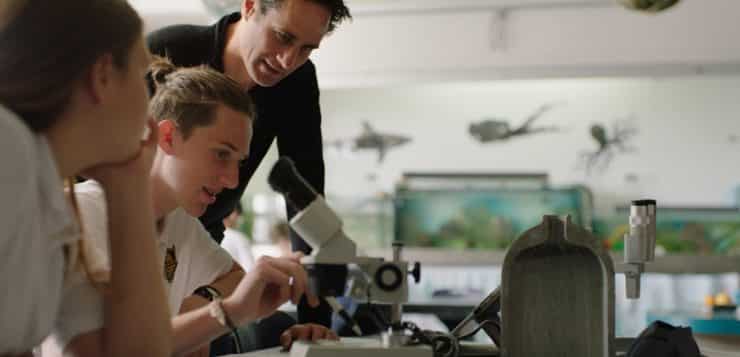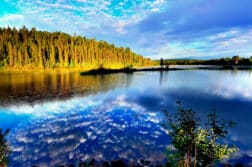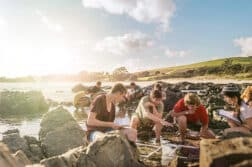New Zealand’s education system lets students explore their future careers before they’ve finished school
New Zealand’s education system prepares students for the challenges of the future by enabling them to explore their future careers before they’ve finished school.
Senior students in New Zealand secondary schools can choose from a wide range of traditional and non-traditional subjects, from entrepreneurship to environmental tourism.
Students have the freedom to follow their interests and strengths, sometimes working towards a vocational qualification as well as gaining credits towards the main secondary school qualification (the National Certificate of Educational Achievement (NCEA).
Discover just six of the future-focussed subjects on offer in New Zealand.
1. MARINE STUDIES
Studying sharks and learning about sustainable fishing is part of the school day for students at Whakatane High School, a North Island school on the shores of the Pacific Ocean. Whakatane marine studies students learn about marine species and plants, currents, weather patterns and water temperatures. They’re also able to gain their scuba diving certificate and take part in diving and snorkelling expeditions.
Their studies give them a better understanding of the importance of the world’s oceans to the health of our planet.
2. ROBOTICS
Creating robots is part of the curriculum for students at Hagley College in Christchurch. As part of their computer science studies, students combine their programming skills with hardware and electronics to make robots for fun or for practical use.
Through interactive lessons, experiments and hands-on projects, the students study science topics such as programming, data representation, coding theories and human-computer interaction. It’s great preparation for some of the most exciting jobs of the future.
3. EARTH AND SPACE SCIENCE
Does life exist on other planets? How are stars formed? And how do organisms survive in the most extreme environments on Earth?
These are just some of the questions tackled by Earth and space science students at Onslow College in Wellington, New Zealand’s capital city.
Earth and space science is a highly flexible subject that schools can design to cover their students’ interests, which could range from astrobiology to weather systems to Antarctic science. The subject can start students on the path to careers in new and emerging science fields.
4. PSYCHOLOGY
Phobias, stereotypes, stress and relationships are among the big issues studied by psychology students at secondary schools around New Zealand.
New Zealand schools offer a combination of theory and practical work, so psychology students often carry out experiments to explore human thoughts, emotions and actions.
At Nayland College in Nelson, at the top of the South Island, psychology students used the Myers-Briggs and Big Five personality tests to analyse each other based on how they decorated cakes.
Psychology students at Tawa College in Wellington attended a three-day camp aimed at exploring the effects of social media deprivation. The students spent their time enjoying fun activities such as archery and horse riding, then carried out experiments to determine the effects of not using their mobile phones.
Psychology is a strong foundation for careers in subjects such as education, marketing, management, leadership and business.
5. ENVIRONMENTAL EDUCATION
For students at Fiordland College, which is on the edge of a national park in the South Island, environmental education doesn’t just happen in the classroom – it involves action projects in the community.
The Fiordland students have tackled projects such as planting waterways, reducing transport emissions, controlling pests, promoting fair trade and raising cultural awareness. Environmental education students from schools around Wellington create their own sustainable enterprises, which range from developing rat-free compost bins to devising ways to protect penguins from predators.
The students gain business and marketing experience as well as valuable employability skills such as leadership, teamwork and innovation.
6. OUTDOOR PURSUITS LEADERSHIP
Studying outdoor pursuits leadership gives students who love adventure a head start on a career in nature.
At Mt Aspiring College in Wanaka in the South Island, students gain skills in kayaking, rock-climbing, hiking, avalanche awareness, skiing and snowboarding, and go on a three-day alpine expedition. They also help plan and run outdoor activities for younger students.
Studying outdoor pursuits leadership gives students a wide range of transferable skills, from leadership and group management to safety planning.
Source: Education New Zealand








Discussion1 Comment
nice thanks